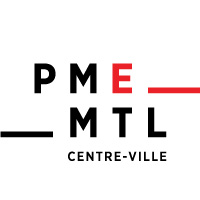The GeoHistoryMaps app revolutionizes the way history is taught, making the subject easier to understand and more exciting. The team behind this application took three years to refine it. Here’s their story.
A few years ago, Martin Plante asked his son why he didn't like history. The answer? “Because it's boring!” The entrepreneur, who already owned a company specializing in educational field trips for students, then made it his mission to design a tool to convey history in an easy, interesting, and fun way. He also wanted to go beyond paper maps by producing a system that could combine timelines, interactions and other components, while managing large databases.

“More than 2,000 companies had created digital maps, but because of technological limitations, they had never reached the stage I was aiming for,” says Martin Plante. Finally, it was a Hawkesbury company that, through various research, implemented the necessary computer coding to make the tool a reality. Even better, these codes were so versatile that what was originally intended to be a simple series of digital maps has evolved into an application with much wider possibilities.
Three years in development
Not having much information to go on, the contractor estimated that it would take about six months to arrive at a finished product. However, it took more than three years to develop the application, which will finally be launched this September.
Martin Plante would not have been able to spend so much time designing and refining this tool if it had not been for the support of his wife, Monica Ortiz. She assumed the management of their other company, so that GeoHistoryMaps (called Carte GéoHistoire in French) would have enough money to continue its development despite not having any operating income.
In addition to the challenges of technological alignment, development was also long due to the need to determine how the application would fit into a curriculum. A demo version was produced and distributed to two Montréal school boards to try to find possible answers to that question.
As many as 250 teachers and 11,000 students registered to use the application in the classroom.
“First of all, it is very difficult to get any product into schools,” says Martin Plante. “So the response to this app allowed us to get our foot in the door. We also knew that similar applications had been tested in the past – in some cases, it took students six months (more than half of the school year) to understand how to use them. This is a scenario we wanted to avoid at all costs.”
It did not take long to sign up 250 teachers and 11,000 students to use the app in the classroom. “This was our market research for making adjustments and improvements,” explains Martin Plante. “We were able to see what worked well or not so well, what interested users, how many people could use it simultaneously, etc.”
Derivatives in the planning stage
With a finished product in hand, Martin Plante wishes to position it as a neutral and credible reference for historical information. “Certainly, the Internet already exists in this regard,” he admits. “However, when conducting a search, you never know if the answers that come up are sponsored by an advertiser who paid an amount to be displayed first in the query results. In our case, the information is validated and not oriented according to monetary factors. The information on Jacques Cartier, for example, will never be influenced by a museum that has paid to promote an exhibition about him.”
More than 2,000 companies had created digital maps, but had never reached the stage I was aiming for.
Although the GeoHistoryMaps app is primarily intended for teachers, Martin Plante does not intend to limit himself to the classroom and has plans to produce a version for the general public. “For example, we could offer a version with quizzes and daily history questions, and then rankings to encourage friendly competition among users.”
In the meantime, the team will devote the first year following the launch to establishing itself in Canada. In a second step, the American market is part of the organization's business plan, as are the thousands of home schools on the continent, a niche with “constant demand for learning materials”.
How PME MTL made the difference for GeoHistoryMaps
“The people at PME MTL have really been extraordinary for us and they are part of our success. They helped us on many levels, from finding offices to managing customer relations and hiring staff. No matter what I ask for, I always get quick answers to my questions and issues.”
Martin Plante's Advice for Start-Up Entrepreneurs
“Take the time to think carefully about your project and how much time and energy it will take. Be prepared to make sacrifices for its success as well. Make sure you have deep pockets, as you often need to invest a great deal before you achieve the desired results. Finally, don't try to do everything at the start. Large luxurious offices with multiple employees is all well and good, but if there is nothing left after a few months, it will have been all for nothing. Instead, build at a gradual pace and focus on the essentials.”
--
GeoHistoryMaps is supported by PME MTL Ouest-de-l'Île.
